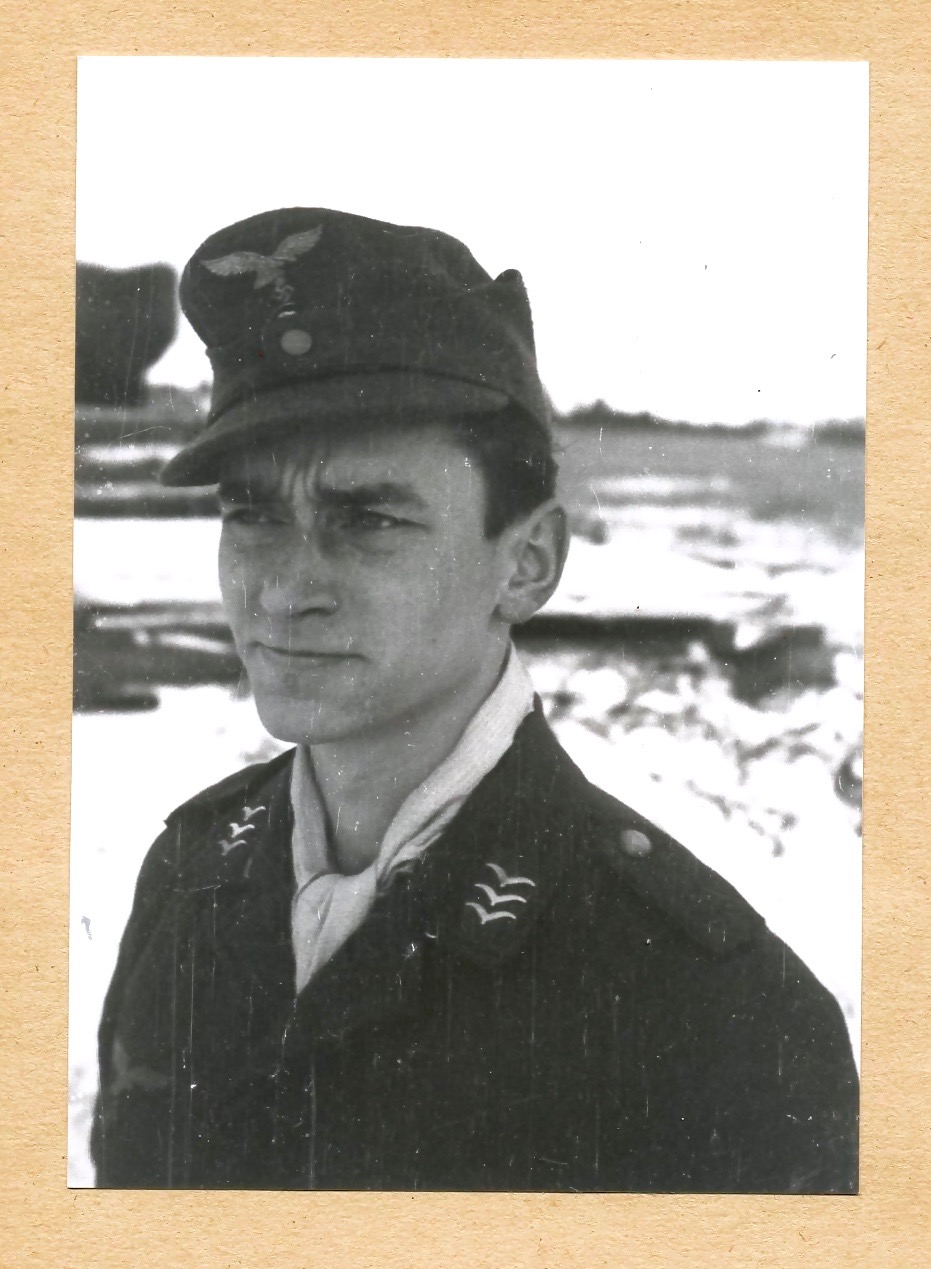Walter Herold

Memories of my time as a soldier
After France capitulated in 22.6.1940, the war began against Russia in 22.6.1941. For 2 years I was working at the “Kaiser-Wilhelm-Institute” with Professor Prandtl, mostly nightshift, performing wing profile design analyzes to improve the “ME 109's” flight characteristics. On my request I was released because, I wanted to enlist and become a soldier. August 1941 I started basic training in "Wolfenbuttel" and was recommended for radio operator training. October 1941 I was off to "Senftenberg" (Lausitz) as a Radio Operator and a Cook to a fully motorized attack division. In November I was sent to a ski training course in Tabartz in the "Thuringer" forest. On 15 January I was off to Russia, by way of Mga to Luga. Paved roads did not exist there, our cars had to be pulled through deep mud and slop. During an extreme cold snap, in a shot-up, demolished barracks we had to set ourselves up. General von Ranzau, had a Fieseler Stork plane at his disposal, well appointed estate rooms and a Officer’s Mess for his amusement. It seemed we were only there for the whims of the Officers. I was "Fourier" (Quartermaster Sergeant), in charge of supplies and provisions. I made two extremely risky trips to Berlin for "Sonderausrustung" (special requests) for the officers eccentric desires.
Several Combat Missions followed, near Narva and Merikula. In 1943 it became more difficult for the radio operators: the Russians got superior Americans radios and were able to listen in and jam our communications As a result starting March 1943 we had major attacks: against our air fields where "Trautloft's" and his Fighter Wing and the “He 111” were stationed, the fire control sites for our heavy artillery which shelled "Leningrad", supply depots which supported the Infantry of the "5th Bavarian", and also the "1st East-Prussian" infantry division.
In the middle of January 1944 the Russian offensive began on a broader front with much greater force, the great retreat began. In chaos, on foot, through knee-deep snow, everyone retreated trying to escape from being trapped by the Russian offensive.
In "Kurland" (Western Latvia), we regrouped. We were re-outfitted and provisioned, including a KFZ 17, "Funkauto" (Radio Truck) with roof antenna.
At the beginning of of February 45 we were embarked from Libau, 3 days after "Wilhelm Gustlof" was sunk. We continued to "Stettin", from there to Berlin and toward "Kustrin". Here we were captured by the Russians. A fence was being built around the camp. We were guarded by a Russian elite unit, that understood the Geneva convention, particularly that unarmed men may be shot at; Thus I was able to make a run for it, successfully. From a farmer I received old civilian clothes and advise from the locals, for many days I wandered trying to reach "Gottingen" .
In the "Harz" region they were still fighting, I had to find a way around. I had a knee injury, which became infected, so with rags I strapped a stick to my leg to immobilize it. There were Allied Military outposts everywhere and you were only allowed to be a few kilometers from your residence. A friendly messenger found out for me, that my mother and sister were evicted from their house and in emergency accommodation on the "Prinzen str" in Gottingen. I was able to convince the guards at the allied check points around the city to let me through to my family.
I spent the next two years working for a farmer named "August Schlote", in "Klein Lengden", as "Gespannfuhrer" (Team Lead) with the horses doing agricultural work. I could bring extra food supply and firewood from there to Gottingen for my family.
Another comrade of mine tried to flee as well, headed for his home in Dessau, however never arrived. From my comrades in the "Funkstaffel" (Radio Team) that were captured and held for many years, as far as I know only one returned.
-end of Page 2-
Additional history :
Some Myths Dispelled
Additional history :
Maps and Statistics
Link to :
Preview of the Album